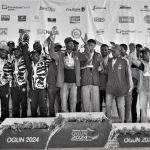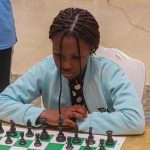On the 10th of January 2020 I attended a Masterclass presented by Grandmaster Levon Aronian. The event was held in the lovely setting of the University Museum in Stellenbosch. Players came from Cape Town and the areas surrounding Stellenbosch to hear the super grandmaster Levon Aronian who is currently the number 6 in the world. Grandmaster Aronian was wearing a Madiba shirt when he presented the lecture.

Grandmaster Aronian is from Armenia. Armenia is a country situated close to Russia and has a population of about 3 million people. The capital city is Yerevan.

The most famous Armenian player before Aronian was the 1963 world champion Tigran Petrosian.

GM Tigran Petrosian
GM Aronian was introduced by the Cape Winelands chairperson Adv Freek Geyer by saying that GM Aronian owns the most famous dog in Armenia called Ponchik. GM Aronian was also recently on the television series Dancing with Stars and he loves classical music. Adv Geyer said that the chess credentials of GM Aronian are so well known that it needs no introduction.
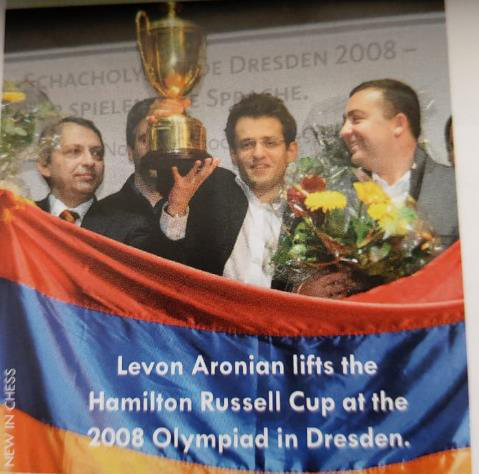
The 2014 number 2 edition of New In Chess has given some information that may be useful for readers. Levon Aronian was born in Yerevan on 6 October 1982. He first caught attention internationally when he became under 12 world champion in 1994. In 2002 he won the Under 20 World Junior championship. Aronian joined the chess elite in 2005 with his win at the 2005 World Cup. His major tournament victories (at that stage) include Wijk aan Zee (4 times), the Moscow Tal Memorial (3 times), Linares ( 2006), the 2011 FIDE Grand Prix and the Alekhine Memorial in Paris and St Petersburg. He has been in the top three to five players since 2010. Aronian led the Armenia team that won the Gold medals at the 2006, 2008 and 2012 Olympiads as well as the 2011 World Team Championships. In 2013 he won the individual bronze medal at the European Team Championship and had the best result on Board 1 at the World Teams with a 2896 performance. He also won Sinquefield Cup in 2015.

GM Aronian then started his lecture and informed the audience that he would deliver a short speech and thereafter he would welcome questions from the audience. He started off by informing us that he was from Armenia that was part of the former Soviet Union.
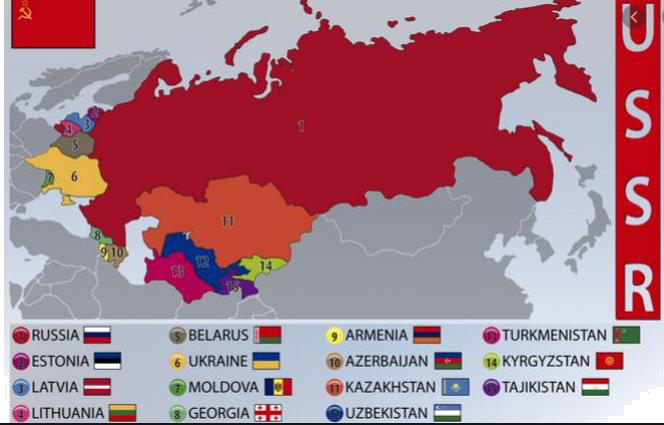
His grandfather could play chess. It was his sister however, who was tired of the young Levon following her around, who taught him how the pieces moved. He had just turned nine. His father was from a village in Belarus that was another country in the former Soviet Union. He joined the House of Pioneers in Armenia. The Soviet Union had many of these House of Pioneers that were active all over where the most talented chess players attended where they could study chess.
He loved music and chess. He tried to remember most things in his mind. One of the most important things was to be able to visualise the colour of each square on the board. This is very useful to know according to GM Aronian. It was generally felt that as a child he was very talented.
The revolution in the Soviet Union then happened in 1989. The Soviet Union collapsed, and one chess trainer had nowhere to go and could not go back to his country in Azerbaijan. His mother then invited the coach to stay with them in Armenia. The country was in transition. As he (Aronian) was Russian speaking he was sometimes beaten up. He was from mixed race heritage. He was pulled out of school and the coach stayed with them for five years.
His parents were scientists. His mother is 73 this year. From the age of ten he started providing for his family. He was from a reading family. He also loved arts and literature. He won the Under 12 world championship and received help from the government. At the age of 18 he was the champion of Armenia. He picked up some problems with the federation and decided to move to Germany with his family at the age of twenty. He lived there for ten years and his chess blossomed when he was there. One of the reasons for this was because travelling from Armenia to anywhere was expensive whereas in Germany travelling was comparatively cheaper.
One of the reasons why he was so successful was because during Soviet times literature was very
cheap. You could buy a good chess book at 1$. He was thus able to build a library of chess books.
Every great player had studied books and books were always useful for the education of players.
From an early age GM Aronian was able to visualise and calculate variations without a board. As he lived far from the chess club, he used the time spent on the train travelling to the chess club to read the books as well. Visualisation is also very important in other fields such as music as well. Pattern recognition is very important.
He was once interviewed and was asked the question how do you remain original. He responded that Sam Rivers stated that to remain original you need to know a lot not to duplicate. His knowledge was growing every day because he was reading so many books. He was literally reading a book every month and collecting knowledge. He didn’t have many tournaments when he was young.
However when he started to play he was not yet in the top 100. After six months however he was in the top fifty and after a further six months he was in the top twenty. After three years he was a top five player. He was beating some very good players. All Armenian players grow up with Petrosian as their hero. Petrosian, however, lived in Georgia and later Moscow.
Aronian has achieved some amazing successes. He has won every super tournament except the World Championship. He has won the World Cup twice and has won the Chess Olympiad on three occasions in 2006, 2008 and 2012.
He mentioned that chess is in the school system in Armenia but they lack finance. There are about thirty grandmasters in Armenia. The early learning of chess is very important in Armenia. The significance of books cannot be underestimated. There is lots of support for chess. He has two strong women in his life, his mother and his wife.
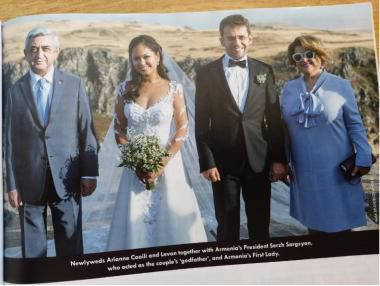
His mother knocked on every door for help to raise sponsorship for his chess as they were from poor middle-class home.
His mother was overly protective, but he was not pushy. One had to be at the top in Armenia to succeed because if you came second you could go to some events, but the main events would go to the champion. So, some players did not reach their full potential because they didn’t receive information.
Chess is certainly an educational tool. He brings his friends into chess. He loves showing beautiful geometry in chess. Chess helps with your attention span and chess can teach you to stay focussed. In chess you could have a concept that you are playing but in other sport there may be a bit of luck. In chess however if you play against logic like say 1. a4 then you will be punished. Chess has a language all of its own. You need to know the square You must be able to play blindfold. You must coordinate your pieces as chess is an unforgiving game.
GM Aronian promised to make a list of things that can convert or attract people to our game.
A question was posed about women players. He stated that last time he received flak for his answer, but he does not believe that females should play separate from men. GM Polgar and GM Hou Yifan has shown that females can more than hold their own against male players.

GM Hou Yifan & GM Polgar
Questions must be asked. How do girls excel? Is this really about girls? Is there a toxic environment in chess? This is after all the 21st century. We must be able to solve this problem. We must make chess more inclusive. We should abolish notions of gender in chess. In China and Russia girls never train chess by themselves. They train together with male players and this should be encouraged.
His toughest opponent is GM Magnus Carlsen. Carlsen doesn’t get upset. The score between them draws not counting is 14 to Carlsen and 6 to Aronian. This is a depressing score and for a long time Aronian used to get excellent positions but couldn’t convert. Winning positions was obtained against Carlsen but he showed that resilience is one of his strengths. Some players have resilience, but others don’t have it. Either you have it or you don’t. Carlsen also when he has a grip on the position won’t let go either!!

Aronian has for a long time been one of the leading exponents of the Marshall Gambit. Has it reached the end of the line was asked? The lines have been thoroughly analysed. White is making Black suffer. Black must play precisely.
Aronian also reflected on the aspect of one move blunders. At the beginning of his career players always waited for him to make those one move blunders. Sometimes GM Aronian was nervous. Other times it was chess fatigue. There is a difference between blitz and time trouble. In blitz you already know that you are playing with less time whereas with time trouble it is a different phase as you started with a classical time limit. The fate of the game should proceed in a logical way. The pressure in time trouble is quite high. In Blitz and Rapid you already start with little time. So, the pressure doesn’t correlate. You need to sharpen tactics. At certain moments you must expand on
your tactical ability.
Grandmasters at 2700 have different ways to improve. The difference may be 5 percent this way or that way. Sometimes it is just psychological. Sometimes you must just be happy.
GM Aronian is a big fan of rap music. He is also a fan of Kendrick Lamar. There is artistry and you have to open up your feelings. You must learn every day. GM Aronian sees himself as the Biggie Smalls of chess internationally. Between his chess – same number – same hood!!!

You need to balance underperformance with having fun. Grandmasters however who play professionally don’t come to have fun. They come to perform. There are responsibilities if you are a leading player. These responsibilities entail you staying in good shape, you must be dedicated and feel fresh. You must have fun also and you must have a desire to create.
The number of events is an important factor. You must have a high level of preparation. You must try to create.
One of the UCT students in the audience asked about neurometric matters when it comes to chess engines. GM Aronian spoke about Alpha Zero. It is no secret he said that artificial intelligence programmes are becoming very popular. However, many players are still trying to understand the position before them. If the computer gives an assessment one must still try to understand the position. Play is on a high level. Sometimes one cannot make out what is computer chess any longer. The old assessments of immediate compensation have been replaced. Good piece structure is real and may eventually prevail. Sometimes the assessment is also too optimistic.
I ventured a question about exchange sacrifices which GM Aronian is also famous for. He values
activity of pieces. He spent a few weeks training with with GM Arshak Petrosian who illustrated to him the advantages of piece activity. He made the study of exchange sacrifice part of the studies. One thus needs to have appreciation when you decide to embark on an exchange sacrifice.
A player like GM Vasily Ivanchuk would sometimes think ten to twenty minutes on the first move. Now this is not because he is confused. No. He is actually trying to unlearn some of the things he already knows. He knows so much that he needs to unlearn something before he plays a move.
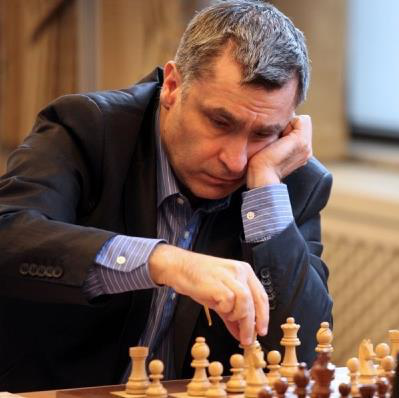
GM Vasily Ivanchuk
You must of course study the classics. The greats unleashed fresh ideas. The classics are good chess propaganda. In those games they showed how to beat patzers. At the beginning of his career Ivanchuk beat him (Aronian) easily. He often wondered about this and he later realised he was not giving his opponent enough respect. Once he accorded the necessary respect to his opponent, Ivanchuk , he started beating him. He informed us that he lost the first nine games to GM Ivanchuk before he beat him. He learnt many things from him. Losses are for more educational than wins.
The scheduling of the 2019 Grand Chess Tour and FIDE events literally made the players drones. Colleagues were not playing well due to chess fatigue. Aronian himself withdrew because of health reasons. He quipped that Danish Grandmaster Bent Larsen said that he had never beaten a healthy opponent!
Preparation is very important. You must have calm nerves. Physical training is also important. He has a 86 year old physical trainer who makes him do sprints. He joked and said the trainer himself doesn’t sprint but makes him sprint. You must be inspired.
A parent asked what advice he would give a parent with young children. GM Aronian pointed out that social media is very strong. This must be managed well. He grew up with a mother and coach who didn’t really compliment him, but she was not demanding. Be kind to the children. When he was growing up, he was very arrogant and didn’t even sometimes analyse with opponents he had beaten. He advised that children should be taught humility, respect for opponents and must be imbued with a sense of kindness towards others. Children must be encouraged to work a lot. The process must be controlled, and the children must get encouraged.
His style was initially influenced by GM Kasparov who was the dominant player when he grew up. He has also learnt that one must not treat a player like a patzer. One must treat all players with respect until they have shown themselves to be a patzer! Aronian said he had loads of arrogance growing up but he soon learnt that it was better to be self-confident rather than arrogant!
GM Aronian has a couple of guys that assist him in his preparation. He works with them but prefers the company of his wife when he travels to tournaments! He works with the players. There are also computers that analyse very strongly. Sometimes an assessment can also give false hope. During events you may not have time to analyse all lines. According to the New in Chess 2012 number 2 page 41 one of his permanent seconds at that time was IM Ashot Nadanian who worked with him for a long time.
He ended off with a bit of advice for players. Play standard first moves. Don’t play tricky openings where you may win because of a tactical nuance or subtlety. The opening you play must have a solid foundation. Make it work, analyse it. Study openings without the need to remember details or traps. To improve you must have a solid foundation. You must play with common sense. Openings such as 1e4 g6 is not logical.
I have decided to juxtapose the lecture with four interviews GM Aronian conducted with the great chess magazine New in Chess. I have also liberally used some of the pictures there. They have a great collection of pictures. In 2012 he did the first one I had in my collection. On page 44 Aronian informed the interviewer that he had been working on a wide range of his weaknesses in his chess. He felt that he had improved his concentration during the game, which was not good enough. With the help of a friend who collects study material for him, he had dedicated himself to the endgame. Aronian told the interviewer, ” I got more passionate about chess. With a passion for the endgame you start realising how difficult chess is. It makes you fall in love with the geometry, all the pieces, the way they go, and what an amazing move you sometimes have to make to win the game. Even the simplest things that you would think you can do with your eyes closed prove too difficult for humans”
- Lately I’ve been managing to improve where I didn’t really have good results, In preparation. I’ve got some ideas. I’ve tried to bring more creativity into my preparation. I try to check all possible sacrifices with my computer and my seconds. I think that’s a profession by itself, being able to work with the computer.”
The next interview was conducted in 2014. Let’s check out the nuggets of wisdom there.
” Chess is so emotional and psychological that you can’t really have good form. If an athlete is
running really well, you cannot take that away from him. Even if something terrible happens in his life, he is going to run well. With a chess player, if for five minutes something goes wrong emotionally, he’s gone. “
- Sometimes I can explain my really bad results because I want to play well. I get fixated on the result instead of getting fixated on the level of play. This definitely doesn’t work for me. We are living in a society that is fixated on numbers, rankings, things like this. Its difficult to forget this, even though that’s what we should be trying to do. Sometimes you think, ok, I don’t want to lose this rating. I want to gain more. As soon as you allow yourself to forget it, that’s when you start playing well.
- You don’t get hurt from a game you really played badly. You get hurt when your opponent outplays you.”
The next interview was published in 2015 number 7. The interview happened after he won the Sinquefield Cup.
- I stuck to a strict daily routine. Waking up around nine. Then gym or pool. No heavy exercises. Cut my training one hour before play. I also arrived two days before the time. I worked on some of my variations. You need to review your lines before a tournament. That’s a good thing to do just to plan the whole picture. What you are going to do with each player… I kind of try to structure my general opening approach, the way I am going to play against my opponents.”
Asked about a run of bad results he replied …” Well I didn’t have time to analyse my mistakes. You know, some things were not working, and I didn’t really have the time and courage to admit it. Once I admitted it and began to work on it… It’s the approach. The way you come to a tournament.”
- When you are working on an opening, I think it was Kramnik who said, it’s as if you are making a suit or a shoe. You are a shoemaker for yourself. They can make the best shoes in the world, but if they don’t fit… So you have to carve those things that you are going to use yourself. And then for the technical part of course you can send it to someone else. But it’s really important to make it fit. Certain positions might be fantastic, but I would never play them, because I don’t like this type of chess.”
The last interview I had was in the New In Chess 2017 number 7. I highlight a few treasures.
- I don’t want to teach anybody a lesson. I just want to prove that I am worthy of being a player that my colleagues respect. I don’t mean a big hero. A small hero from a small country. “
- During the World Cup I listened to lots of rap and lots of classical music. “
On confidence
” Yeah, I am always confident when I play chess, especially before I lose (laughs)!

I found a great article written by Russian journalist Mark Glukhovsky. He writes
“Among the elite grandmasters, Aronian is the only one for whom team appearances are no less significant than individual ones. One of the best players in the world, he never missed team training sessions which took place in scenic but remote corners of Armenia.
For Aronian, the team is an expanded version of his family. This isn’t just a combination of his Jewish (fathers roots) and Armenian (mothers roots). It’s also the poverty of the 1990’s which they survived collectively.
To the traditional questions about his great predecessors, he often responds with Alekhine, Tal, Larsen, Fischer, Kasparov, Ivanchuk and Spassky. He rates Kramnik and Carlsen very highly.
Spassky occupies a special according to the author Glukhovsky, because of the similarities, their constant thrust for battle, being uncompromising at the board, a love of tactical complications, preparedness for domination and non- standard thinking. The universality of their style and a dislike for the official side of chess. Like Spassky, Aronian thinks a lot about the psychology of the game, understands his opponents well, and likes to be tricky at the board.

GM Boris Spassky
He is a risk taker. He likes Fischer Random chess and has been champion of this discipline. His closest chess friend is Boris Gelfand. Aronian himself thinks that the main thing outside of chess is spiritual comfort. Everything should be good – in your family, in your relationships, in your country and in the world. He hates conflicts and obvious injustices makes him angry. His main source of spiritual comfort is art, in some spheres of which he had expert knowledge.
Aronian reads a lot in Russian and English. His favourite authors are Kafka and Platonov. His favourite poet is Marina Tsvetaeva. Zoshchenko, Gogol and Herman Hesse may also be added.
- I tolerate losses more easily than wine” – we should take this phrase of Levon seriously. The point is that defeat stimulates him to work on himself, while a victory weakens him. He is ashamed to play badly, and not only for himself. “
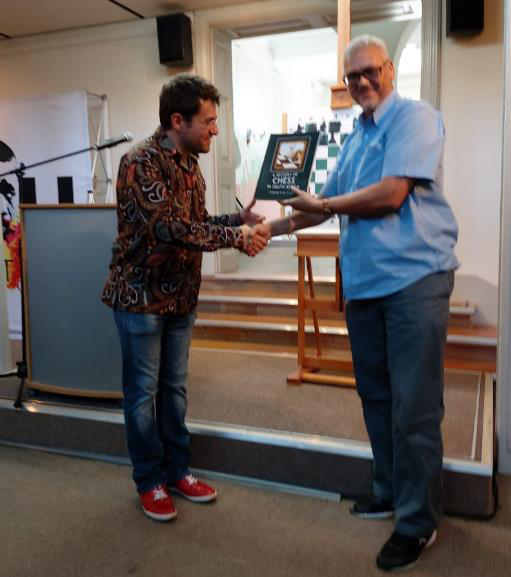
Enjoy the rest of the week. Thank you for reading my impressions of a great lecture given by a great player.
Regards
Dr Lyndon Bouah










